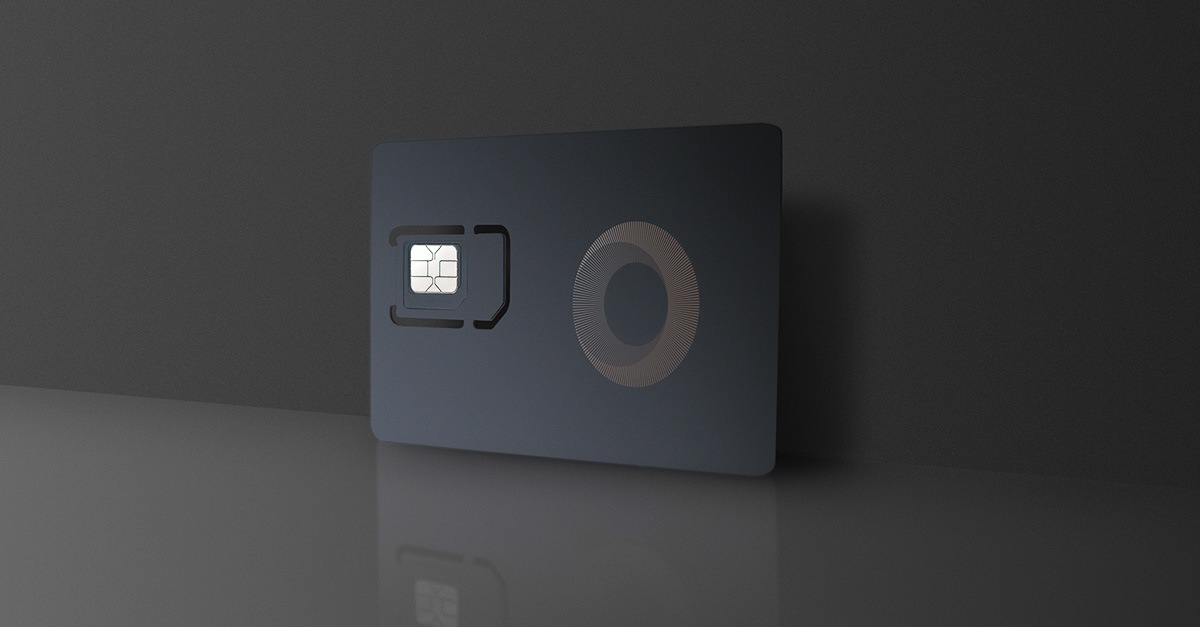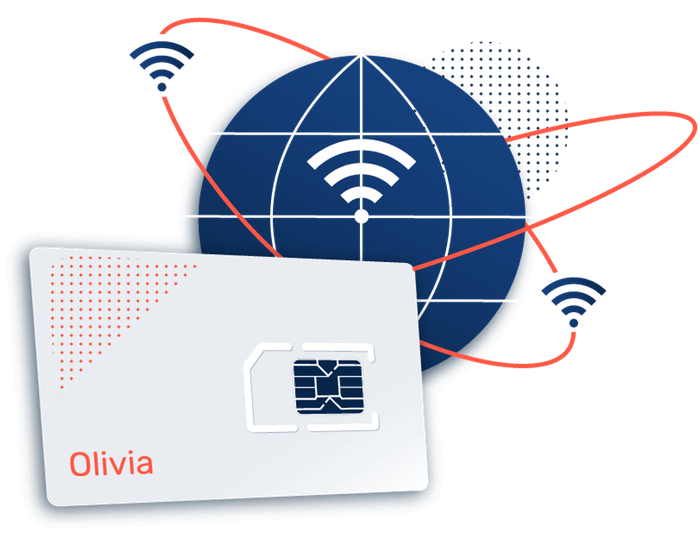Iot M2m Sim Card Global IoT SIM Card LOT 100
The rise of the Internet of Things (IoT) has reworked varied sectors, with healthcare being some of the considerably impacted. The implementation of IoT devices in healthcare provides enhanced patient monitoring, streamlined operations, and improved outcomes. However, because the variety of related units grows, so does the necessity for secure IoT connectivity for healthcare devices. The stakes are particularly high on this sector, where knowledge sensitivity and affected person safety are paramount.
IoT gadgets in healthcare embrace wearables, smart beds, and distant monitoring methods. These instruments collect important data, permitting healthcare providers to observe trends over time and make informed decisions. However, this interconnectivity poses important risks, primarily around data safety and patient privateness. Hackers and malicious entities are increasingly focusing on healthcare infrastructures, making the need for robust safety protocols indisputable.
Secure IoT connectivity entails the usage of multiple layers of safety measures designed to guard not only the units but in addition the data being transmitted. Iot Sim Card copyright. Encryption performs an important function right here. By converting the data into an unreadable format during transmission, encryption ensures that even if intercepted, the information stays inaccessible to unauthorized customers. Strong encryption protocols are necessary for any gadget that communicates delicate data.
Authentication processes add one other important layer of security. Each gadget interacting inside a healthcare community should possess safe credentials, making it tough for unauthorized gadgets or people to gain access. Advanced authentication techniques such as two-factor authentication or biometric methods can improve this layer, offering added assurance that solely approved personnel can interact with delicate knowledge.
Iot Device With Sim Card IoT SIM card Knowledge Base
When contemplating secure IoT connectivity for healthcare units, the implementation of a comprehensive network structure is crucial. This consists of using virtual personal networks (VPNs) to create secure tunnels for data transmission. VPNs protect data from being intercepted by creating a safeguarded connection between devices and servers. Organizations need to ensure that these networks are maintained and updated regularly to counter rising threats.
Moreover, steady monitoring of the community can help in identifying any strange activities. Real-time analytics can flag anomalies, permitting providers to take instant action if a risk is detected. Automated response techniques can further enhance this security mannequin, enabling immediate protective measures with out handbook intervention, which could be important for time-sensitive information.

Regulatory frameworks such as HIPAA (Health Insurance Portability and Accountability Act) define the required measures healthcare providers should adhere to in safeguarding patient data. Compliance with these regulations isn't just a legal necessity but in addition a basic aspect of building trust with patients. By making certain that each one related devices meet these standards, healthcare organizations can establish a secure environment for information change.
Cellular Iot Sim Card IoT SIM Cards Fair pricing reliability expert
The significance of educating workers can't be underestimated. Employees handling healthcare devices and networks must be well-versed in safety protocols and best practices. Regular coaching sessions can maintain the staff up to date on emerging threats and the significance of information security. Human error stays one of the weakest links in cybersecurity; thus, fostering a culture of safety consciousness inside healthcare organizations is essential.
Device producers also play a crucial position in establishing a secure IoT framework. Devices must be designed with security in thoughts from the ground up, incorporating options similar to safe boot processes, frequent software program updates, and vulnerability assessments. Each system must assist simple firmware updates to patch recognized vulnerabilities and improve security measures.
Iot M2m Sim Card Global IoT SIM Card LOT 100
Collaboration amongst stakeholders within the healthcare sector is significant for creating complete security measures. Healthcare suppliers, device manufacturers, and regulatory our bodies should work collectively to create a unified strategy to secure IoT connectivity. Establishing industry standards can encourage more secure practices across the sector, paving the finest way for safe integration of IoT technologies.
In conclusion, safe IoT connectivity for healthcare gadgets just isn't merely an add-on however a basic requirement for leveraging the total potential of linked technologies in patient care. The healthcare industry must spend cash on sturdy safety measures, including encryption, authentication, and continuous monitoring, whereas additionally aligning with regulatory standards. Importantly, schooling and collaboration amongst stakeholders function essential pillars in forming a secure environment. As IoT adoption continues to develop, prioritizing these components will protect sensitive knowledge and in the end improve patient security.
Global Sim Card Iot IoT Data SIM Card
- Implement robust encryption protocols to safeguard data transmitted between healthcare units and remote servers, ensuring patient confidentiality.
- Utilize secure device onboarding processes to authenticate and authorize new IoT devices before they connect with the community, lowering unauthorized access dangers.
- Regularly update firmware and software program of linked devices to guard against vulnerabilities and ensure compliance with the newest safety standards.
- Employ network segmentation to isolate healthcare IoT devices from other important techniques, mitigating the influence of potential breaches.
Iot M2m Sim Card About IoT SIM Cards

- Establish real-time monitoring and anomaly detection systems to identify uncommon activity or breaches, allowing for swift incident response.
- Implement strict access controls and roles to restrict who can view and handle data from IoT units, maintaining a precept of least privilege.
Iot Sim Card Europe International IoT M2M SIM Card
- Conduct regular security audits and vulnerability assessments on IoT infrastructure to proactively establish and tackle weak factors.
- Ensure all collected patient information is pseudonymized or anonymized when possible, reducing dangers in case of information breaches.
Iot Sim Card India IoT SIM Cards
- Collaborate with manufacturers to ensure that IoT gadgets come geared up with built-in security measures that comply with business regulations.
- Educate healthcare employees on security best practices and the importance of safeguarding IoT gadgets to foster a culture of security consciousness inside the organization.
What is Secure IoT connectivity for healthcare devices?
Secure IoT connectivity refers to the implementation of protecting measures within the communication processes between Internet of Things (IoT) units in healthcare. It ensures that data transmitted between units, similar to wearable medical units or smart hospital gear, is encrypted and secure from unauthorized access or cyber threats - Nb-Iot Sim Card.
Why is Secure IoT connectivity essential in healthcare?
Vodafone Iot Sim Card IoT SIM Cards
It is essential because healthcare visit site units typically deal with sensitive affected person data, including personal health information. Secure connectivity protects this knowledge from breaches, maintains affected person privacy, and ensures compliance with regulations like HIPAA, thus enhancing total trust in healthcare systems.
How does encryption work in IoT healthcare devices?
Encryption converts the information transmitted between units right into a coded format that can only be read by authorized users who possess the correct decryption key. This process defends the knowledge from unauthorized access, sustaining confidentiality during transmission.
Prepaid Iot Sim Card IoT SIM Cards

What are frequent security threats to IoT gadgets in healthcare?
Common threats embody unauthorized system access, information breaches, denial-of-service assaults, and malware. Each poses dangers to affected person information security, device performance, and general healthcare delivery, necessitating robust security protocols to mitigate these risks.
How can healthcare organizations guarantee secure IoT connectivity?
Organizations can implement strong encryption protocols, common security audits, continuous monitoring, and employees coaching. They should also adhere to business finest practices and regulatory standards to foster a culture of security consciousness.
Sim Card Per Iot IoT SIM Cards Cellular M2M Connectivity
What function does authentication play in securing IoT devices?
Authentication ensures that only authorized units and users can entry the healthcare IoT community. Strong authentication methods, like multi-factor authentication, help prevent unauthorized access and safeguard delicate information.
Iot Sim Card Uk International IoT M2M SIM Card
How usually ought to safety measures be up to date for IoT healthcare devices?
Security measures ought to be reviewed and up to date frequently, ideally at least every six months or whenever a danger is recognized. As cybersecurity threats evolve, it is important for healthcare organizations to adapt their strategies accordingly.
Hologram Global Iot Sim Card IoT SIM
Can sufferers or users track the security of their healthcare devices?
Yes, many modern healthcare IoT devices include features that allow customers to observe settings and entry logs. Patients should inquire about these features and stay informed about their device's security standing to make sure their information stays protected.
Cheapest Iot Sim Card The Evolution of SIM Cards IoT Devices
What are browse this site the implications of a security breach in IoT healthcare devices?
A breach can lead to unauthorized access to delicate patient information, monetary loss, and reputational damage to healthcare suppliers. It also can compromise patient security, as device performance may be affected, finally impacting the quality of care received.